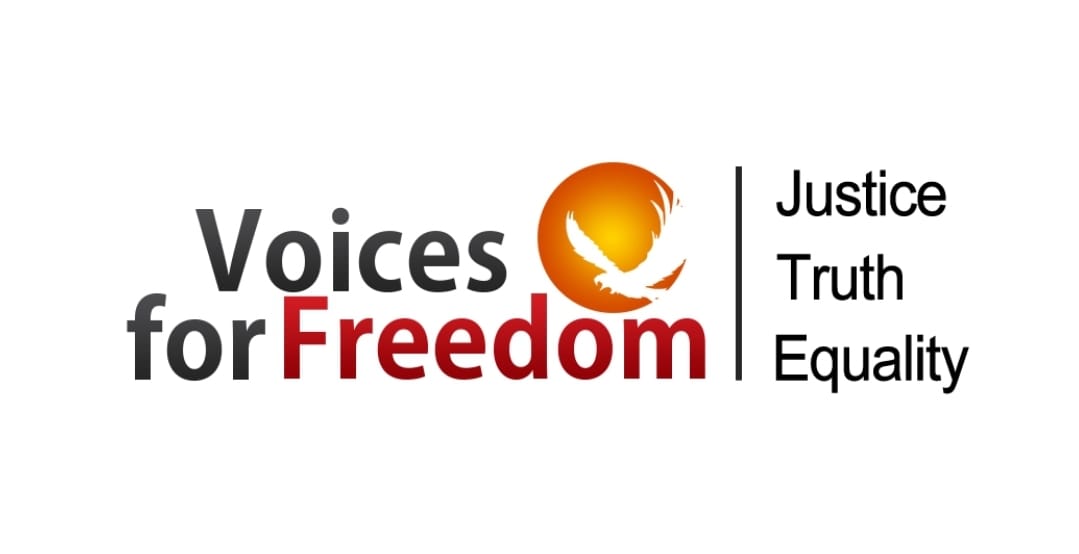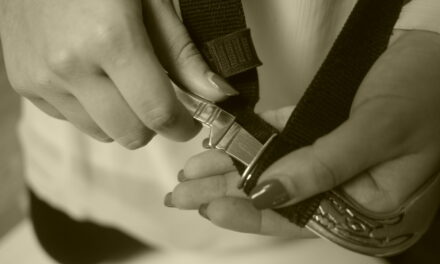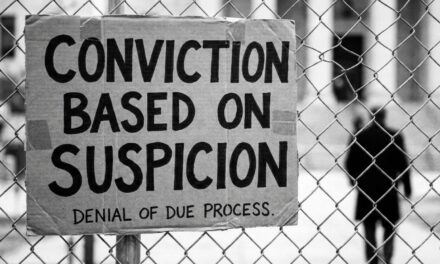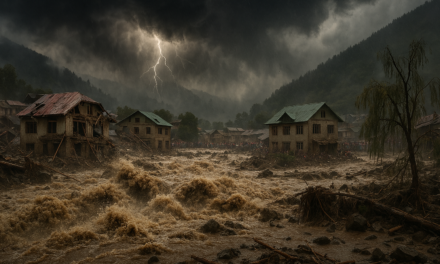Voices for Freedom assesses human rights situation in Kashmir
The Committee for the Release of Political Prisoners visited various parts of Kashmir from 24-28 July 2009. Jagmohan Singh represented Voices for Freedom. Other members of the fact-finding team included academics, civil rights and political activists, namely, Prof. S. A. R. Geelani (Vice President, CRPP), Prof. Sujato Bhadra (Vice President, CRPP), Prof. Amit Bhattacharya (General Secretary, CRPP), Prof. Ravindra Goel (Delhi University), Shiv Nandan (civil rights activist), Kanwarpal Singh (Dal Khalsa) and Gopal Menon (documentary film maker).
The Committee released its preliminary findings to the media on 29 July 2009 at Srinagar. The interim findings of the team and suggestions/demands are as follows:

Return Kashmir to its Peoples
Committee for Release of Political Prisoners demands immediate demilitarisation of Kashmir and restoration of the rights of the people in consonance with the aspirations of the people of Kashmir
Introduction:
To understand the historical and cultural roots of the Kashmir problem;
To study and assess the ground realities of the life of the people of Kashmir -from the cities to the far-flung inaccessible areas;
To engage with the families of victims of gross and systematic abuse of human rights by the security forces -police, para military and military;
To gauge the extent of presence of the Indian armed forces and to measure the depth of impunity with which the Indian army operates throughout Kashmir, and
To decipher the social, cultural, religious and political layers of the Indo-Kashmir conflict and on the basis of that understanding to suggest postulates for the resolution of the conflict.
 | |
| Prof. Ravinder Goel (Delhi University), Kanwarpal Singh (Dal Khalsa), Prof. S.A.R. Geelani (CRPP), Jagmohan Singh (Voices for Freedom), Shiv Nandan (Civil Rights Activist, Kathua) addressing the media in Srinagar |
THE SHOPIAN SHAME:
Members of the team visited Shopian to confirm what was already common knowledge to every resident of the small town -that the young lady Niloufer and her sister in law Aaisa Jan were brutally assaulted, raped and killed.
We met the members of the family, the leaders of the Mushawarat Committee, the father of the two eye witnesses -Ghulam Maideen Lone and Ghulam Ahmed Lone (who were later detained by the Special Investigation Team and are still in their illegal detention), members of the Bar Association, Srinagar and residents of the town. We visited the scene of the crime alongwith the father and cousin of the Niloufer and witnessed the spots from where the two women were abducted, raped and killed and from where their bodies were found. Each of the people who spoke to the team members repeated with tears in their eyes that the “men in uniform” committed the brutal act. They narrated to us as to how the SP of the area, Javed Iqbal Mattoo, conspired with a section of the doctors to destroy evidence, including forensic evidence, how he repeatedly threatened the women members of the victim family, how he dismissed the act by loudly repeating, “Aise wakye to hothe hi rahten hain”.
People who saw on television, as did the team members were shocked to listen to the diatribe of the Inspector General of Police, the Divisional Commissioner, Srinagar and the state chief minister, Mr. Omar Abdullah shamelessly trying to dismiss it as a case of “drowning”, knowing fully well that the water flowing in the stream where the bodies were found was not more than four to six inches deep. We learnt from the members of the Mushawarat Committee and Niloufer’s father that the police are still attempting to shield the barbaric perpetrators and how the SP, who was arrested for destruction of evidence, is not in a police lock-up but in the confines of a police officer’s mess.
The inhuman, bizarre and blatant flouting of all norms of decent human behaviour and political boldness to speak the truth is apparent, even to the blind eye.
| The Committee For the Release of Political Prisoners is of the firm view that the rightful aspirations of the people of Kashmir should be respected and they should be given the free, fair and unfettered opportunity to express their desire through the universally accepted right to self-determination. |
Unmindful of the agony of the victims’ family and uncaring of the people’s resistance and concern cutting across party lines and caring two hoots for deliverance of justice, the cover-up campaign is still on by the administration. People suspected and circumstances bear this out that in case the SP is released on bail and the government continues to admit the nature of the crime, these two murders (rather three, as Niloufer was on the family way) is likely to become yet another statistical addition to the long list of people who have been killed with impunity by the security forces in Kashmir.
To rub salt on the wounds of the families and to brazenly demonstrate the high-handedness of the state, the government of the youngest chief minister has suspended from service Dr. Nighat, who sincerely followed the Hippocrates Oath, did not buckle under police and government pressure and who in the second postmortem declared that the two women were brutally gangraped, while those doctors who connived with the police and spoke lies continue to enjoy the patronage of the state. Nothing can be more shameful.
 The brutal assault and murder of Bibi Amima in Dolipora in the dead of night, in her own house by a security force personnel, who came there to commit the crime with cover from his colleagues of the same unit, is another case of increasing assaults on women in this disputed territory.
The brutal assault and murder of Bibi Amima in Dolipora in the dead of night, in her own house by a security force personnel, who came there to commit the crime with cover from his colleagues of the same unit, is another case of increasing assaults on women in this disputed territory.
Such cases of rape and harassment of women are now new. They have happened in the past in Kanun Paushpora Kupwara, Chak Saiyadpora Shopian and many other places where civil society and even may be media is not aware of.
The Committee is of the view that the security forces are using Rape as a weapon to suppress the spirit of revolt and rebellion of the people of Kashmir and to exert their authority.
WHO RULES KASHMIR?
Streets, Bridges, cultivable lands, mountain rangers, schools, hospitals, cinema halls, orchards, houses and all other places of habitat have been occupied by almost every denomination of the Indian army and other security forces. According to a media report, more than 40,000 acres of cultivable lands is under the control of various army and paramilitary units. At Trehgam we saw that the water resources of the town have been taken over by the army and clean drinking water is not available for the 17,000 odd inhabitants of the area. It is estimated that more than half a million gun-toting security men dot virtually every inch of the region. Kashmir is under seige. Every Kashmiri, conscious of his rights and even willing to die, lives in a climate of fear.
 The Committee closely observed the slogans used by army units. Sample a few: 1. Respect All, Suspect All, 2. Be Alert Be Alive, 3. Fighting for You and 4. Relax with CRPF. Likewise the names of army and para military units too have been changed to browbeat the people. To show their prowess, we have units like the Rajwar Tigers. In the village Khaigam, the total number of inhabitants is less than 600, but there are four army units stationed in the area. The army units taunt men and women everyday, as the villagers had asked for their withdrawal. Clearly the nomenclature is meant to poison the minds of the people and to force their allegiance to the presence of the army in the region.
The Committee closely observed the slogans used by army units. Sample a few: 1. Respect All, Suspect All, 2. Be Alert Be Alive, 3. Fighting for You and 4. Relax with CRPF. Likewise the names of army and para military units too have been changed to browbeat the people. To show their prowess, we have units like the Rajwar Tigers. In the village Khaigam, the total number of inhabitants is less than 600, but there are four army units stationed in the area. The army units taunt men and women everyday, as the villagers had asked for their withdrawal. Clearly the nomenclature is meant to poison the minds of the people and to force their allegiance to the presence of the army in the region.
Civil administration is virtually non-existent and whatever is there is subservient to the Indian armed forces. The army in Kashmir is not in the “aid of civil administration” as is required by law but is actually at the mercy and beck and call of the deeply entrenched armed forces, who with the assistance of a plethora of draconian laws like Public Safety Act, Armed Forces Special Powers Act, Enemy Agent Ordinance and the like maim and kill with complete impunity. The newly elected government is merely a mask to shield and provide free run to the armed forces.
| The Committee is of the view that the security forces are using Rape as a weapon to suppress the spirit of revolt and rebellion of the people of Kashmir and to exert their authority. |
The daily movement of the troops in vast numbers from one part of the state to another as a public demonstration of power and authority of the army leaves nothing to the imagination as to who is running the affairs of this region. Political authority is totally under the jackboots of the army and the bureaucratic policy makers in Delhi who have abrogated to themselves the right to decide the fate of the people of Kashmir. Every maneouvre like the so-called “free and fair elections”, the setting up of the toothless and near-absent State Human Rights Commission, the “turning of the blind eye” by the judiciary in the face of contempt of court by the police and the administration, the backtracking from the pre-election promises of release of political detenues and withdrawal of Armed Forces Special Powers Act and other such laws by the incumbent chief minister, political talks without the participation of Kashmiri representatives, are all facades of democracy being enacted in this territory.
The armed forces continue to violate all Supreme Court directives, guidelines of the National Human Rights Commission and Geneva conventions to be followed in the event of an armed conflict.
DETENTION OF KASHMIRI LEADERS:
To demonstrate the functioning of democracy, like the earlier experiments in Punjab and the North-east, it was “proudly announced” by political participants”, political pundits from Delhi and the Union government in Delhi and their blue-eyed boy chief minister Mr. Omar Abdullah that all political prisoners will be released. He has done exactly the opposite. Unabashedly. Veteran Hurriyat leader Syed Ali Shah Geelani, JKLF leader Yasin Malik (since released after nearly four months of house arrest), Huriyat Chairperson Mirwaiz Omar Farooq (who too has been placed under house arrest for long) other political leaders like Shabir Shah, Naeem Khan, Asiya Andrabi, Masrat Alam, Mushtaq ul Islam, Ashraf Shahrai, Bilal Siddiqui and hundreds of others have been detained under preventive detention laws, particularly the Public Safety Act. Instead of releasing prisoners, the new state government has filled in prisons in Srinagar and Jammu and there are affidavits by the administration that “jails are overcrowded.”
The Committee also learnt that in order to create rifts between one section of the leadership with the other, the government has resorted to the policy of divide and rule in a rather vicious way. Shabir Shah has been detained for the death of Sheikh Abdul Aziz, though the whole world knows that last year, this leader was killed in full public view in the presence of thousands of Kashmiri demonstrators by indiscriminate firing by the security forces.
WHITHER DUE PROCESS AND RULE OF LAW:
From our interaction with jail authorities, who denied us permission to visit the Srinagar prison to assess the living conditions there and to meet the detenues and from our talks with members of the Srinagar Bar Association, we learnt that this region, with such heavy presence of security forces is invariably “short of security forces for escort vehicles” to transport detenues to and from judicial complexes.
We learnt that a habeas corpus petition, which should be normally heard and adjucicated upon in days takes not lesss than a year to be disposed off. We further learnt that many lawyers who were human rights defenders have been killed and many have been attacked during the last years. The functioning of the judiciary, which allows the impunity through sheer negligence or inefficiency or even pressure demonstrates that there is no “rule of law” in Kashmir.
SADHBAVNA -FOR WHOM and WHERE?
Since long the Indian Armed Forces have been touting their Sadhbhavna approach towards the citizens of Kashmir. This kind of approach has been spoken by the new political establishment too. To find out more, we chose to go to the worst affected area which could have been a bench mark for this programme. We visited Dardpora village, which has the unfortunate distinction of living up to its name. It is indeed a village of pain with more than 150 widows and 450 orphans. A majority of the men have died at the hands of the security forces. We interacted with young and old widows whose pain and suffering has had no remorse and no rehabilitation package from the state. The Vocational Centre set up has no teachers and no investment has been made, there is no private school, the Sarva Siksha Abhiyan exists on paper and medical facilities are close to nil. Widows have been reduced to picking wood from the forests and begging.
THE KELLER KILLINGS:
Members of the team visited Keller village and met the wife of the deceased. She told the team members unquivocally that the killings were because of a family feud and another member of the family had been killed in the past because of the same reason.
On the basis of our on the spot study, the Committee for the Release of Political Prisoners,
- demands that the Indian armed forces, various other kinds of para military forces like the CRPF, etc, should all be withdrawn without delay.
- demands that all draconian laws should be repealed and withdrawn. The recommendations of the Justice Jeevan Reddy Committee must be implemented and the Armed Forces Special Powers Act must be withdrawn.
- denounces the detention of political leaders and seeks the immediate release of all political prisoners.
- demands that the culprits in the Shopian case should be identified and arrested.
- demands that the deliberate subversion of justice by denying escort facilities to undertrials must stop and there should be speedy trials of all accused as per Supreme Court guidelines and speedier disposal of habeas corpus petitions.
- demands that all accused who have been shifted to prisons in Jammu and elsewhere must be transferred back to jails near their homes as per Supreme Court guidelines, pending the disposal of their cases.
- The Committee For the Release of Political Prisoners is of the firm view that the rightful aspirations of the people of Kashmir should be respected and they should be given the free, fair and unfettered opportunity to express their desire through the universally accepted right to self-determination.





